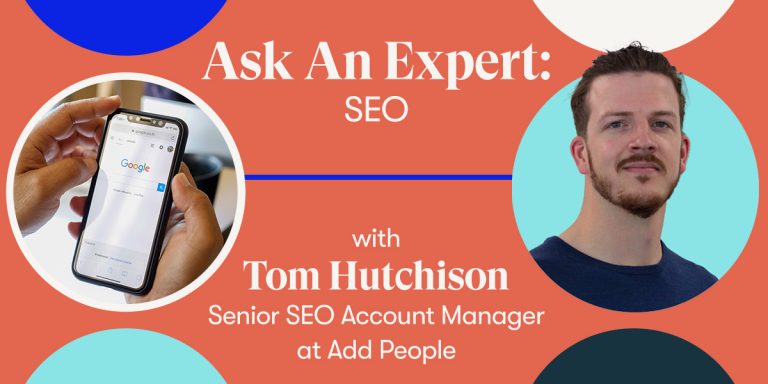
Struggling to get your head around SEO?
Don’t worry…
Our very own SEO expert, Tom Hutchison, has the answers to all your burning questions, in our latest Q&A!
Want to grow your business online?
How would you get started with an SEO strategy?
“There are a number of different considerations that need to be taken into account when setting out an SEO strategy.
For example, you would need to consider whether your business is lead generation or eCommerce, the industry your business is in, and the value you are looking to get out of the overall campaign.
These different factors, as well as data, pulled from sources such as Google Analytics, Google Search Console and Ahrefs into keyword research and backlinks profiles, would help to accurately craft a bespoke SEO strategy.”

How can small businesses target brand searches for big businesses? Should they?
“Competing with other companies in your space for their brand terms might sound like a good idea at face value.
You know the user is in the market for something you offer, maybe you’ve seen promising search volume around the term and branded organic search converts at around 60%.
There are a few key considerations to make here though:
1. You’re automatically at a disadvantage – The brand you’re targeting, likely already have a level of authority and relevance for that search term across their entire site.
2. The user is looking for a specific brand. If you can make it to page 1 (or even position 1) these users know who they’re looking for and will default to them.
3. Think about your bounce rate – It’s not everything, but if you’re bringing in lots of traffic that ultimately leaves your site as soon as they realise you aren’t who they’re looking for, this could do more harm than good.
Instead, think about how you can boost your own branded searches.
Traditional advertising methods like TV and radio can work, but paid social media is a low barrier-to-entry channel that allows you to get your brand in front of new potential customers.”

How much content should I have on my website? What is the optimal number?
“There is no optimal number when it comes to defining good content.
So, the difference between good, bad or very good content is not based on the amount of content.
The measure is based on how helpful the content is.
The content should fulfil search intent and cover the topic regardless of its length, amount, etc.”

What are the most important ranking factors other than link building & content marketing? Any surprising ones?
“There is no particular ranking factor that can be labelled as the most important one.
You’ve mentioned 2 of the most essential factors and there will be many more factors that can either fall within those 2 or be an extension of them.
The most “surprising” or overlooked factor, is user experience.
Google takes steps to improve the user experience, which is overlooked by most in the SEO industry.
So, focussing on “how does it improve user experience” on your site should be the first qualification for our actions.”

Why does Google use their own version of Meta Titles? How do I resolve this if I want to use my own?
“Google uses their version of Metadata to what Google deems to be the most appropriate reflection of the specific page.
There is no way to “resolve” it, so you can’t really have “your version” as we have to play by Google’s rules.
You will need to continuously monitor & update your version of metadata based on the best practice guidelines provided by Google to ensure the least amount of change to it.”

How do I optimise the pages on my website?
“Optimising pages needs a key understanding of the way that a user is searching for – the intent.
This starts with keyword information and an understanding of what currently ranks for this query in the search results.
This gives some key insights into what is working now. You can then research the best ways to reflect your findings in the URLs, titles, and content.”

How can I optimise technical SEO issues?
“Firstly the key to this task is understanding what the issues are.
Programs like Screaming Frog and Sitebulb can be used to crawl the site and identify issues.
Issues can range from missing titles and meta information to more complex indexing problems.
Once the issues have been identified, it’s a matter of understanding what is causing each issue and working through to resolve them.”

How important are keywords and keyword density to SEO?
“Keywords still play a part in SEO, we still see the use of keywords with page titles, h1’s, further up the body copy, as being influential in rankings.
But, over the last few years, Google’s topical understanding of content has improved significantly.
Therefore, we also see sites and pages – which are clearly authorities on a given topic – ranking well, without the use of the search query on the page.
Keyword density is not something we’ve considered for 10+ years.
You should write naturally and answer the query, and you’ll likely be using your keywords effectively – there is some great software, such as Clearscope, to help understand if you have covered a topic thoroughly.”
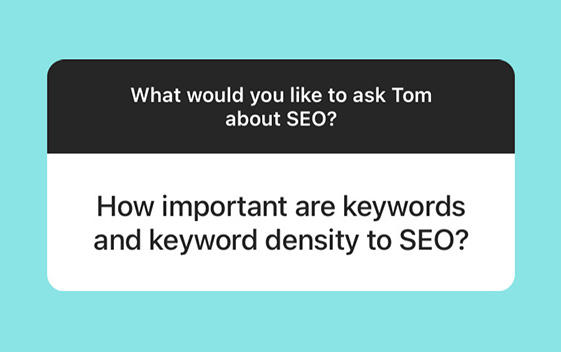
Does word count still matter in SEO?
“There is no direct correlation between more words and ranking well.
However, if you’re trying to answer a very technical query that requires a detailed explanation, don’t expect to rank with 200 words.
Similarly don’t expect to rank if you write 5000 words on ‘how to boil an egg’.
Again, this comes back to fulfilling the searcher’s intent in the clearest and most considered way possible.”
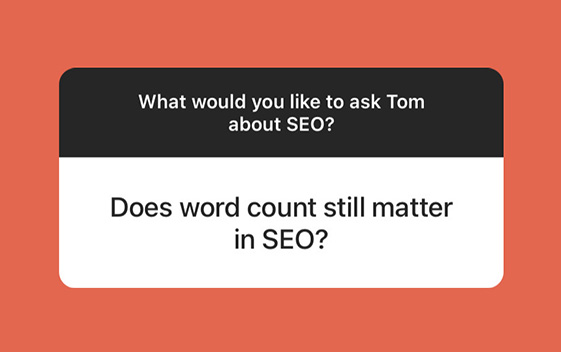
Does writing in an active voice and shorter sentences make an article more SEO-friendly?
“In a lot of cases, I think content reads better on the web in an active voice.
With regards to the direct impact on SEO, I’m yet to see.
Ultimately, if it reads better, then yes, do it!
Short sentences certainly help keep a reader engaged.
If they are keeping the user engaged and improving user experience signals, we believe Google consider this and will help you rank better, in the main.
A way you can measure user engagement is by looking at your session time on your blog posts and also your bounce rate, where users immediately go back to the SERP (search engine results page).
However, there will be situations where longer and passive sentences do make sense to use, so, it’s not a ‘one size fits all’ and a bit of human judgment will still win here.”
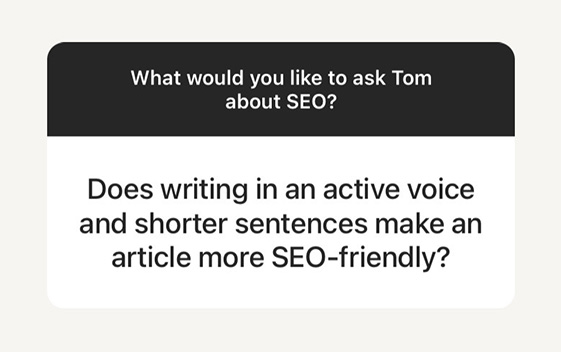
How do I enable users to install or launch our app from search results? Does word count still matter in SEO?
“App installs from search results rely heavily on the app content matching the users’ search query.
There are several pieces of schema referenced on schema.org that can help Google better associate the app to a query.”
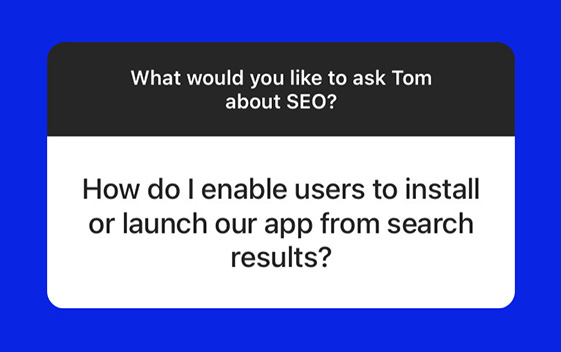
How do I track organic app conversions by keywords and channels?
“Tracking app conversions are best handled by specific software such as Firebase, which as a Google product, includes analytics information that can be configured to your tracking requirements and can incorporate information from UTMs (Urchin Tracking Module).”
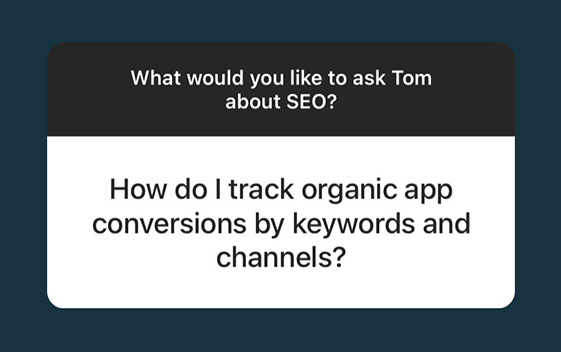
Don't miss our next Q&A!
Keep a lookout on our Instagram stories, for our poll to decide the next Q&A topic!
Once the topic is chosen, you can send us YOUR questions!
Keep a lookout on our LinkedIn page, for our poll to decide the next Q&A topic!
Once the topic is chosen, you can send us YOUR questions!
